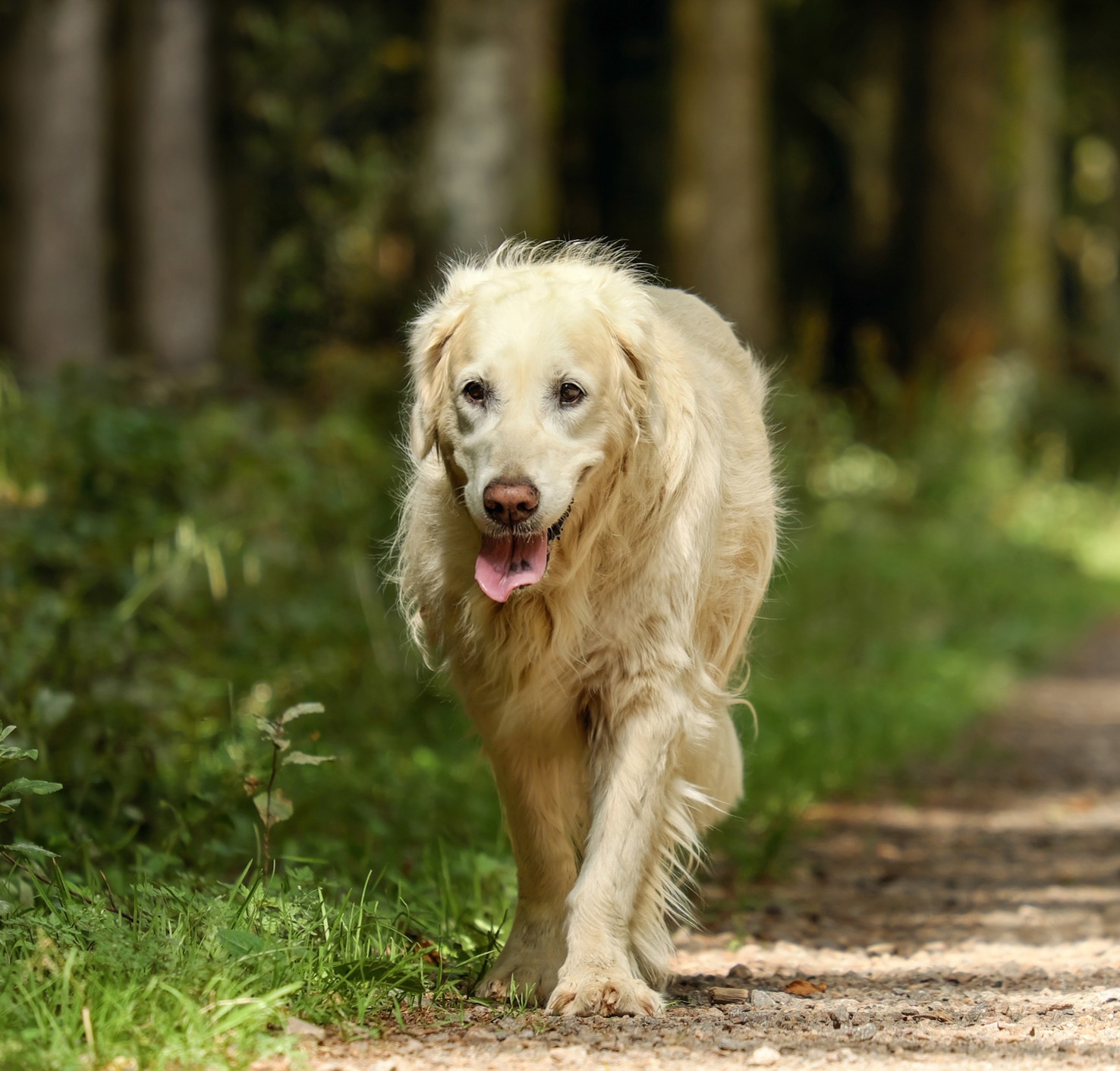Arthtritis in Dogs
Canine Arthritis
Osteoarthritis is a very common problem in older dogs. The disease can occur in any moving joint in the body but is more commonly seen in the hips, elbows and knee joints.
Normal healthy joints are made up of the ends of two (or more) bones (e.g. in the hip it is the thigh bone and the pelvic bone). These are both covered by a smooth protective layer of cartilage. To aid a gliding movement between these two surfaces there is a small amount of fluid within the joint, which acts as a lubricant.
Arthritis causes an inflammation of the joint, the lubricant fluid can breakdown and the cartilage becomes cracked and worn. In severe cases no cartilage will be left and the joint will consist of bone grinding against bone which is extremely painful.
The disease starts because of a variety of reasons – previous trauma, developmental conditions such as hip dysplasia, overload of joints because of obesity or age related ‘wear and tear’. The dog may be lame on the affected leg or may be stiff after rest and find it difficult to stand up. Typically the stiffness improves once the animal has walked a short distance. Unfortunately this disease has no cure but we have a number of ways of managing it.

How can we manage arthritis in dogs?
1. Weight control - obesity increases the severity of arthritis. If your dog is overweight it will help enormously if some of the excess weight is lost, thus reducing the pressure on the joint.
2. Exercise – little and often is best. We recommend around three twenty-minute gentle walks a day. Swimming or Hydrotherapy is a good form of exercise as it helps builds up muscle around the joints.
3. Anti-inflammatory drugs – These are a useful way of controlling the pain and inflammation associated with arthritis. Side-effects are rare in dogs but some suffer from from sickness or diarrhoea. The drugs are given initially at a high dose but the long-term aim is to reduce the dose to the minimum effective amount. Doses of the anti-inflammatories can be increased again during flare-ups of arthritis.
4. Cartrophen injections (Pentosan polysulphate) – this is one of the same drugs that humans may receive when suffering from osteoarthritis. It inhibits the specific enzymes that cause cartilage breakdown as well as binding to cracks already present in the cartilage and stimulating new growth to fill the gaps. It also has some anti-inflammatory and pain killing effects too. In dogs it is given as an injection under the skin (just like their booster vaccinations) every week for 4 weeks.
5. Glucosamine and Chondroitin Supplements – This is given to dogs at initially a high dose, and later lowered. It supplements the body’s own amino sugars to help to maintain joint condition. There are no side effects associated with these supplements but we recommend only giving high quality products.
6. Acupuncture - Our vet, Katie Longmire runs acupuncture clinics on most weekday afternoons. These are primarily aimed at animals which are in musculo-skeletal pain, like dogs suffering from chronic arthritis. Regular patients often improve to the extent that they can be managed without the need for pain-killing medication. The treatment is very safe and has only minimal possible side effects, like mild sedation during or following the sessions.
7. Herbal Tinctures – Katie Longmire is a herbal practitioner and can offer another method of combating osteoarthtritis and chronic pain. These are naturally occurring anti-inflammatories. There is scientific proof of the compounds found within the plants to have effects on inflammatory pathways.
If you would like to have a chat about your dog's symptoms with one of our pet health professionals, please contact us or register online.






